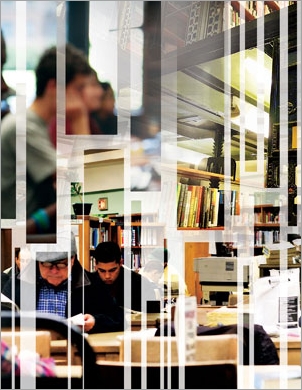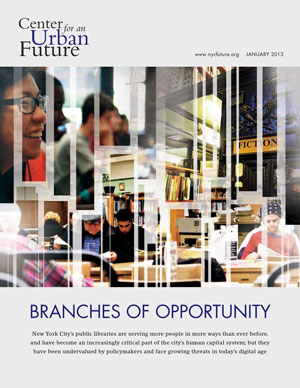In April 2013, City Council Speaker Christine Quinn announced a new proposal to harness the incredible power of New York City's branch libraries. The proposal was sparked by our January 2013 Branches of Opportunity report about the increasingly important role that the city's public libraries are playing in communities around the five boroughs. At the press conference to announce the initiative, Speaker Quinn noted that our report was "the foundation for this whole idea."
Our report, which was funded by the Charles H. Revson Foundation, documented that the city's public libraries are serving a record number of New Yorkers, even in an age of e-books, and have become the go-to place for so many New Yorkers who lack the basic literacy, language and technological skills that are needed in today’s knowledge economy. It argued that no other institution reaches as many people in as many ways as libraries, from immigrants and seniors to teens.
Speaker Quinn's proposal taps into this, embracing libraries' unique position in communities across the city as trustworthy institutions that have a unique ability to reach New Yorkers who might not seek assistance from government offices. She proposed making some libraries "Mini City Halls," and called for a number of specific ideas to be explored as a way of achieving her proposal:
-
Creating a pilot program through a public-private partnership that would work to expand City services and CBO programming at local library branches. After neighborhoods for the pilot program are identified, the libraries would collaborate with stakeholders and partners to identify and meet community needs.
-
Developing training and resources to provide libraries and their staff with the tools they need to help individuals seeking services navigate government resources.
-
Identifying the most-requested services at each library branch and working with city agencies and their staff to facilitate access to services and resources.
-
Creating a working group charged with developing a plan to identify the needs, key issues and opportunities at all branches across the three library systems. The working group would be comprised of the city’s three library systems, city agencies, local elected officials, community-based organizations and key community stakeholders.



